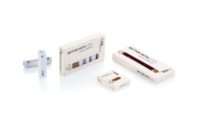A recent Bobst roundtable asks how close are we to the sustainable packaging solutions of the future? And if you could put your money on which would be the most dominant new solution for the future, what would you say?
Sustainability in the flexible packaging industry is a complex topical issue. Players along the value chain must deliver on sustainability requirements on several different levels: consumers’ expectations, food protection and safety, legal requirements compliance, packaging development versus end-of-life collection and disposal systems, and packaging shelf appeal — all while staying competitively priced.
To address the wide implications and ramifications of this issue, Bobst invited a panel of guests from all walks of the industry and the academic world to an open discussion, which was held in presence and recorded live in the Competence Center of Bobst Italia, in San Giorgio Monferrato, Italy. At the roundtable, chaired by Michal Lodej, editor of FlexoTech magazine, Xavier Bonamour, application manager at Bobst was joined by Jesús Maza Lisa, packaging materials dev. manager, flexibles, at Danone; Achim Grefenstein, senior vice president group R&D, Constantia Flexibles; Rossano Lambertini, business development, SIT Group, and David Parma, managing partner, Ipsos Strategy.
Issues tackled in the course of the discussions covered what consumers want from packaging, how brand owners are reacting to trends and demands, the challenges involved in the move from multi-material packaging to packaging designed for recycling, how legislation, as well collecting and recycling facilities, influence the boundaries of any new packaging structure, and how machine manufacturing supports the brand owners and converters in their journey toward winning the sustainability challenge within packaging.
Other wide-reaching talking points looked at the problem of plastics being demonized and how the industry can rally to prevent materials being made a scape goat in the future, along with who and how should keep the process rational and grounded.
What was evident during the discussion is the common acknowledgement that traditional ways of working in the packaging industry are being shaken to the core and that siloed knowledge is a hindrance to the progress towards a more sustainable future. The dialogue between all the parties on their respective requirements and capabilities is a pre-condition for the development of viable flexible packaging solutions.
See the webinar here.


